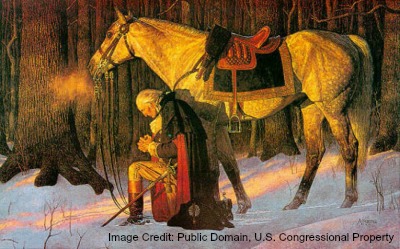Our culture longs for superheroes because our country lacks leadership. So we flock to see Ironman, or binge-watch Daredevil, to console and distract ourselves. Through most of our history, we educated our young people on epics and ancient chronicles, chivalric ballads and tales of saints. Real liberal arts education starts with stories, of Achilles’ passion for glory and Hector’s love of home; of Aeneas’ selfless sacrifice both for his ancestors and his descendants; of Moses’s fear of the Lord and Jesus’ tenderness toward the weak.
Our greatest leaders were men who’d modeled their lives on exemplars from the past, real or imagined. George Washington grew up on the struggles of the Roman Republic and the maxims of Stoic philosophy. He used these to hone himself into the “indispensable man” who could unify the squabbling colonies and corral its ragtag army through countless lopsided defeats and the snows of Valley Forge. His ancient attachment to freedom quashed the temptation to silence our Republic’s infant chaos with a military dictatorship — a lure that revolutionary leaders across South America succumbed to, with tragic results. Generations of young Americans in turn looked to Washington as a kind of civic saint, a Cincinnatus who left the plow, took up the sword to serve his homeland, then sheathed it and practiced peace. ![]()
Source: www.stream.org, Jason Scott Jones
 Listen Online
Listen Online Watch Online
Watch Online Find a Station in Your Area
Find a Station in Your Area









 Listen Now
Listen Now Watch Online
Watch Online
